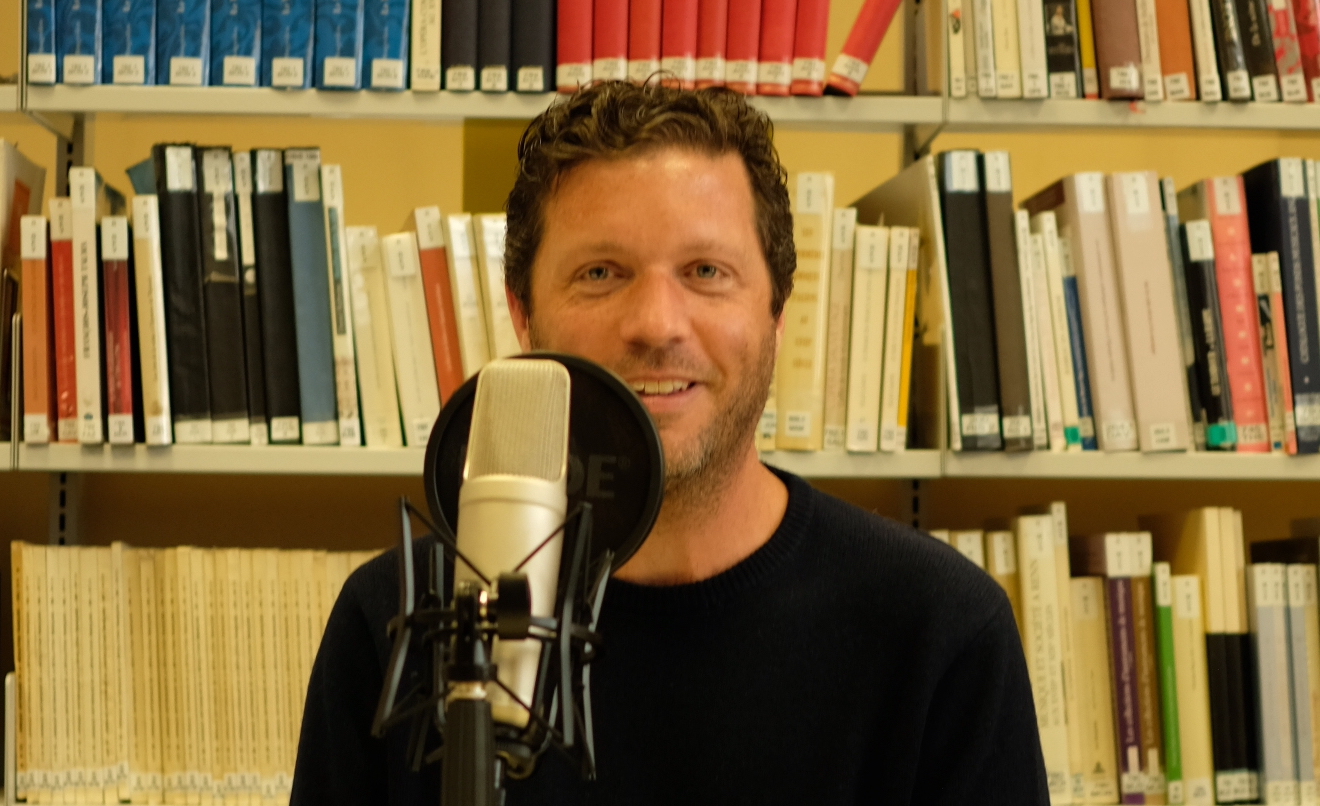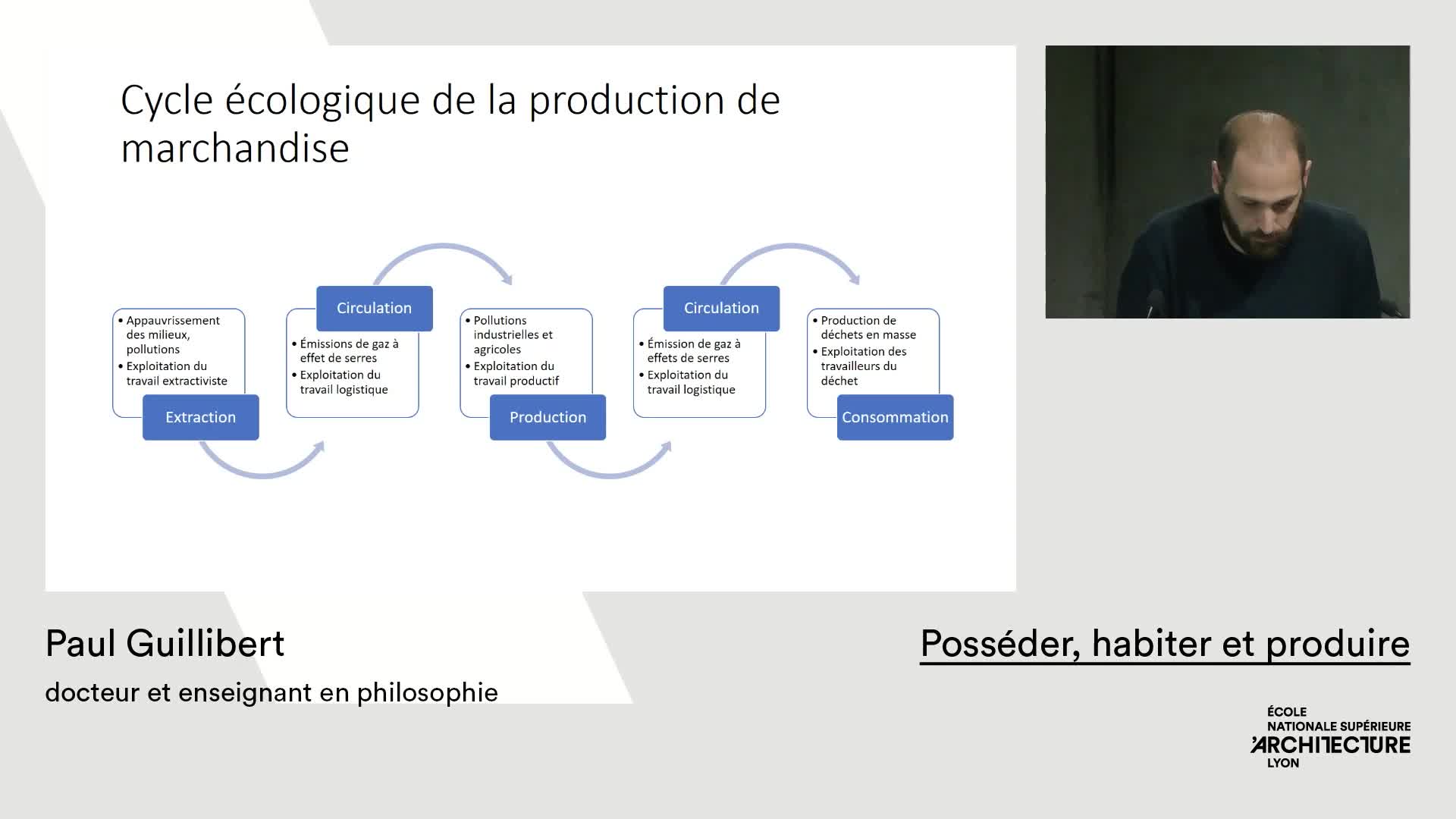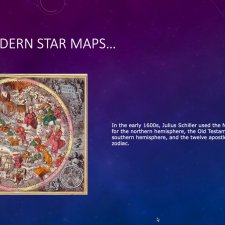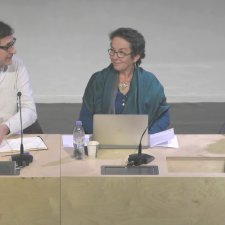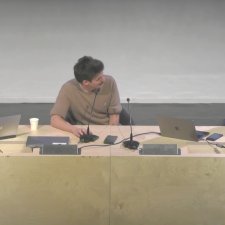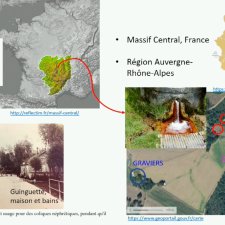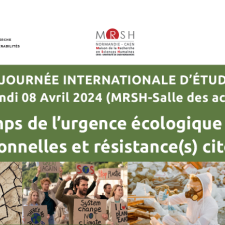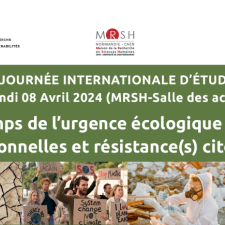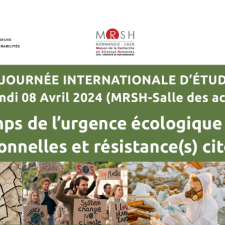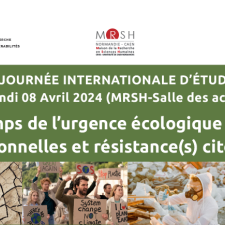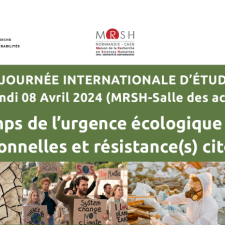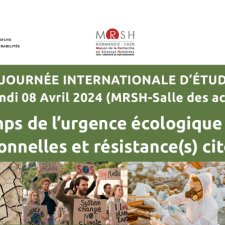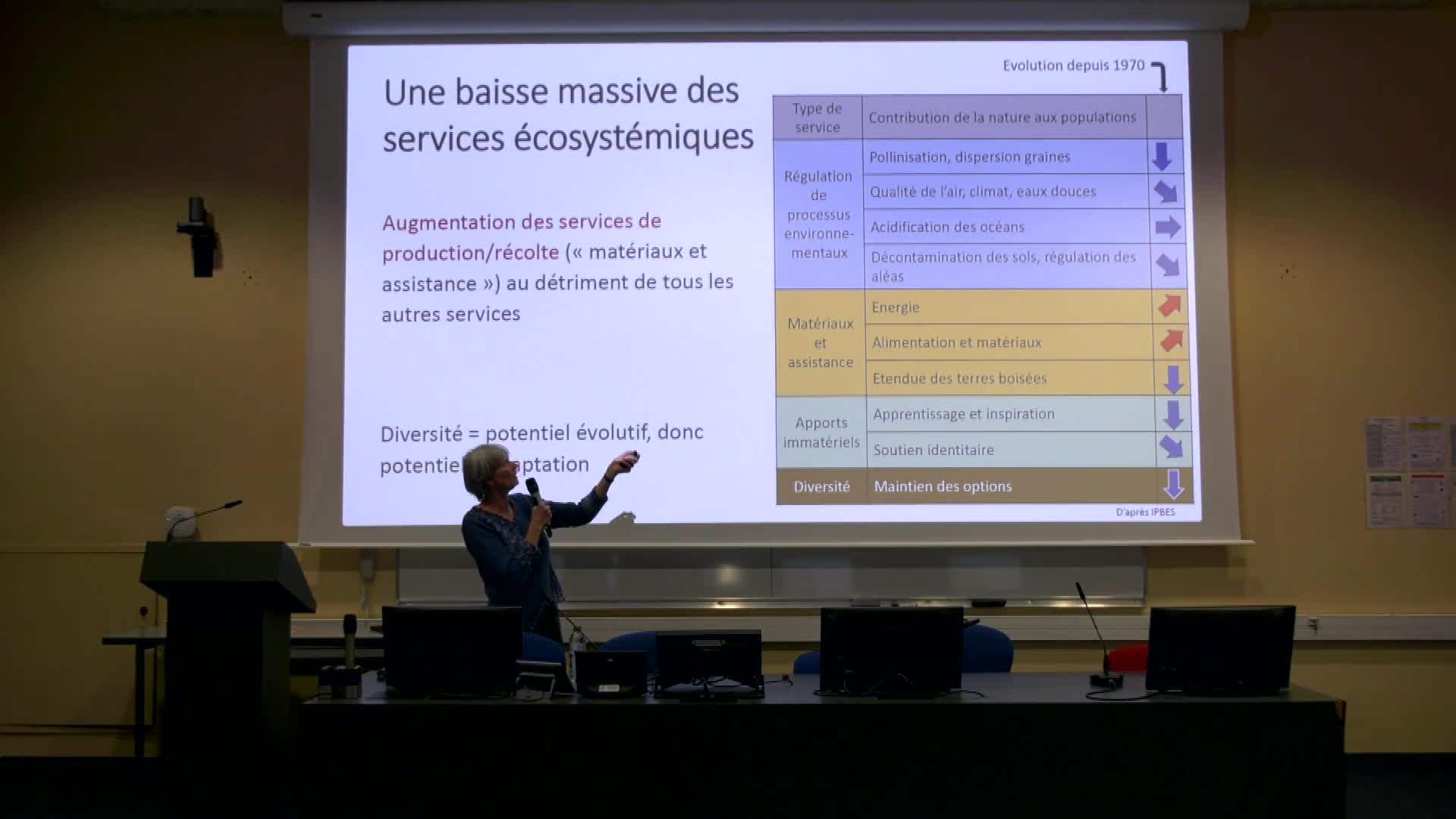Chapitres
- Presentation by Sophie Chiari03'47"
- Conference by Lowell Duckert62'48"
- Questions34'54"
Notice
Cold Doings: Early Modern Actions for Our Warmer World
- document 1 document 2 document 3
- niveau 1 niveau 2 niveau 3
Descriptif
Lowell Duckert is Associate Professor of English, specialist of early modern drama and environmental criticism (University of Delaware). Invited by the Maison des Sciences de l'Homme in Clermont-Ferrand, he gave a lecture titled "Cold Doings: Early Modern Actions for Our Warmer World", in march 2024.
In summary
My presentation asks a simple question: what is cold? Natural philosophers, explorers, and artists of the sixteenth and seventeenth centuries offered a variety of responses. Cold was a material substance comprised of “frigorifick atoms”; it was the elemental force behind freezing, or, “conglutination”; it pierced bodies and plugged up its pores; it was a shapeshifter that appeared as icebergs, snowflakes, and sheets; it lived in the “frozen zone” of the upper globe, but it also rode the north wind and spread out across glaciers; it took, prolonged, and gave life; and it was intensely pleasurable. Cold Doings: Early Modern Actions for Our Warmer World is an experimental book project that uncovers cold’s dynamism at different degrees of intensity, traces its assortment of agential forms, and visits its energetic, far-north places. To be clear, reading centuries-old texts will not save our vanishing ice and snow. But at a time in which popular climate studies obsess over “ends” (and “the end”) of a planet headed for meltdown, or a world “after” or “without” ice, I argue that the doings of early modern cold assist us in counter-apocalyptic thinking. Poems, plays, treatises, and travel accounts of the period crucially reframe how we view the cold of the past as well as the present, lending us a creative vocabulary to reimagine Arctic relations right now.
Lowell Duckert
Avec les mêmes intervenants et intervenantes
-
Shakespearean performances. All the World's a (Wet) Stage
DuckertLowellActors in "Pericles" (1607-8) and "The Tempest" (1611) do not merely act drenched during their stormy scenes...
Sur le même thème
-
-
Shakespeare and the ‘spots of heaven’
Chiari-LasserreSophie'Shakespeare and the spots of heaven' is a talk given by Sophie Chiari on the occasion of an international conference entitled 'Preserving the Cultural Skyscape'.
-
Regards croisés
GroutCatherineDoutriauxEmmanuelMilliotVirginiePropositions de synthèse du Colloque international Expériences sensibles, fabrique et critique des territoires en mutation
-
Écologie et approches sensibles
FerrenPascalLarcherJonathanPoupinPerrineTroisième duo du Colloque international Expériences sensibles, fabrique et critique des territoires en mutation
-
ONDINE - Les sOurces miNérales : Des co-évolutIons homme- enviroNnement atypiquEs
BeaugerAudeLe projet ONDINE, présenté par Aude Beauger (GEOLAB), cherche à comprendre et caractériser les co-évolutions du milieu naturel et des sociétés autour des sources minérales de Médagues à Joze.
-
Résistances, oui mais lesquelles ?
L’invocation de l’urgence est-elle de nature à catalyser un changement écologique invoqué de façon répétitive depuis des décennies ? Ce n’est pas sûr.
-
Existe-t-il un éco-populisme ?
Dans le contexte de la montée croissante des extrêmes droites, de plus en plus de travaux pointent l'émergence d'un "populisme environnemental" (green populism) ou d'un "éco-populisme" définis à
-
La désobéissance civile et la question climatique : cadrage de l'urgence et freins à la mobilisation
Les travaux sur la désobéissance civile insistent sur la question de la légitimation des mobilisations ; en effet, il s'agit d'assumer des illégalismes tout en mettant en scène son identité de citoyen
-
Luttes écologiques et logiques d'emprise. La rébellion des milieux fait-elle bouger le monde des or…
Depuis le milieu des années 1990, la sociologie des alertes et des controverses a mis en évidence les contraintes qui pèsent sur la trajectoire des causes publiques, en insistant sur les questions
-
-
La crise écologique entre légalité et radicalité
Les institutions publiques et l'arsenal juridique adopté depuis une cinquantaine d'années dans les démocraties occidentales n'apparaissent pas à même de juguler les contestations radicales des projets
-
La disparition des espèces : le dangereux déclin de la nature
Till-BottraudIrèneIrène Till-Bottraud, spécialiste d'écologie évolutive, évalue les menaces qui pèsent sur les milieux naturels, les mesures à prendre et les effets d'actions déjà engagées.



